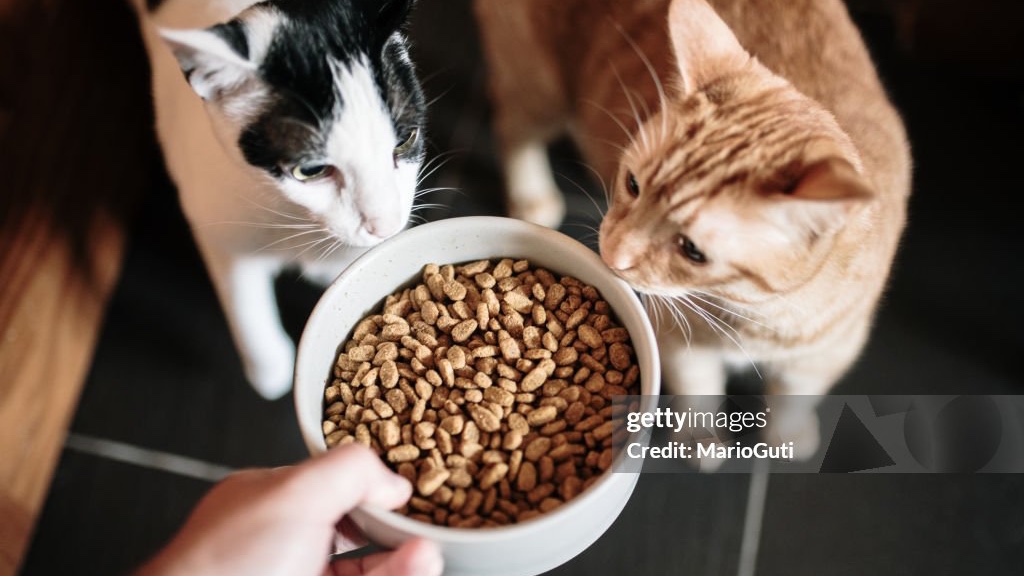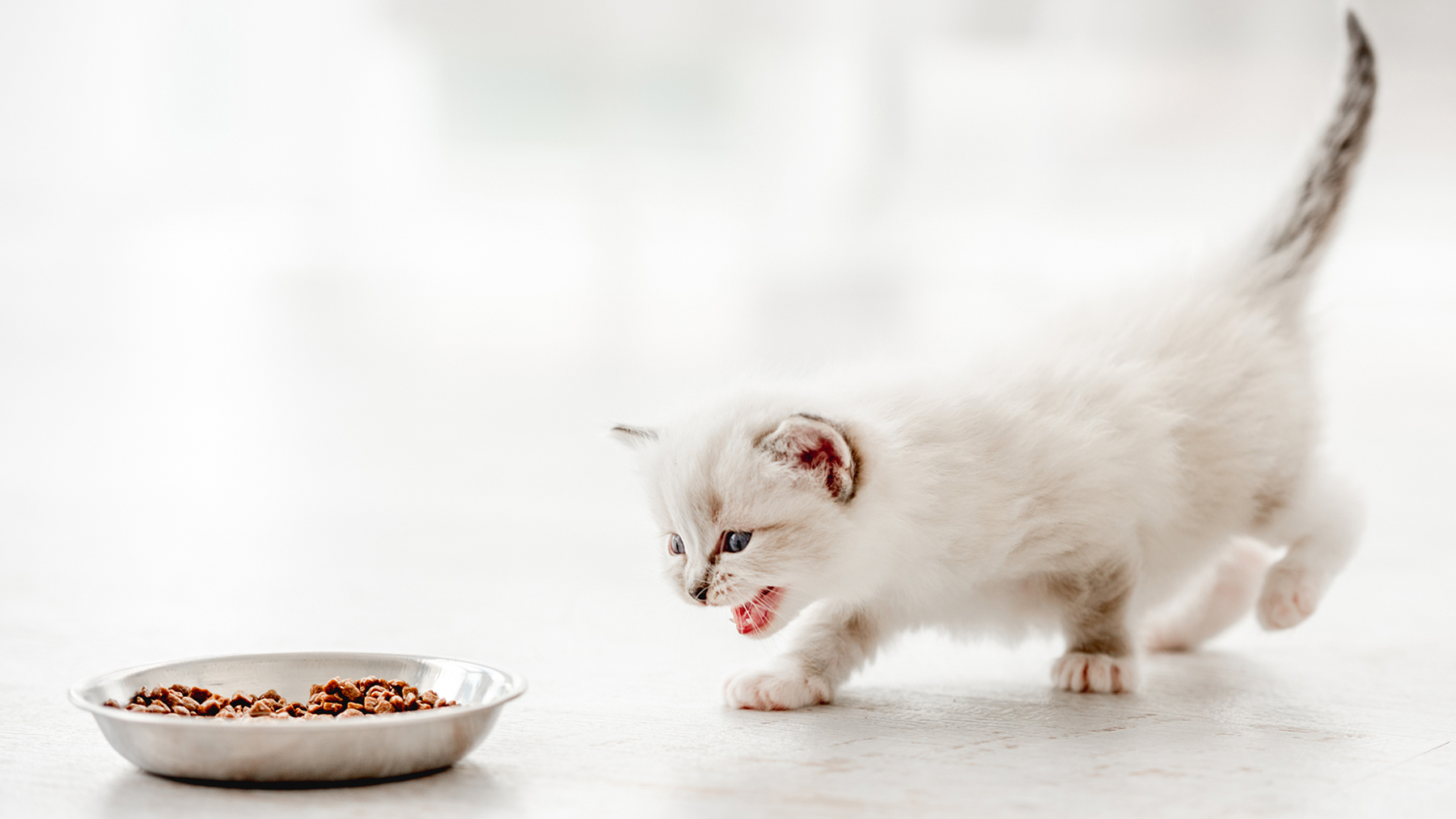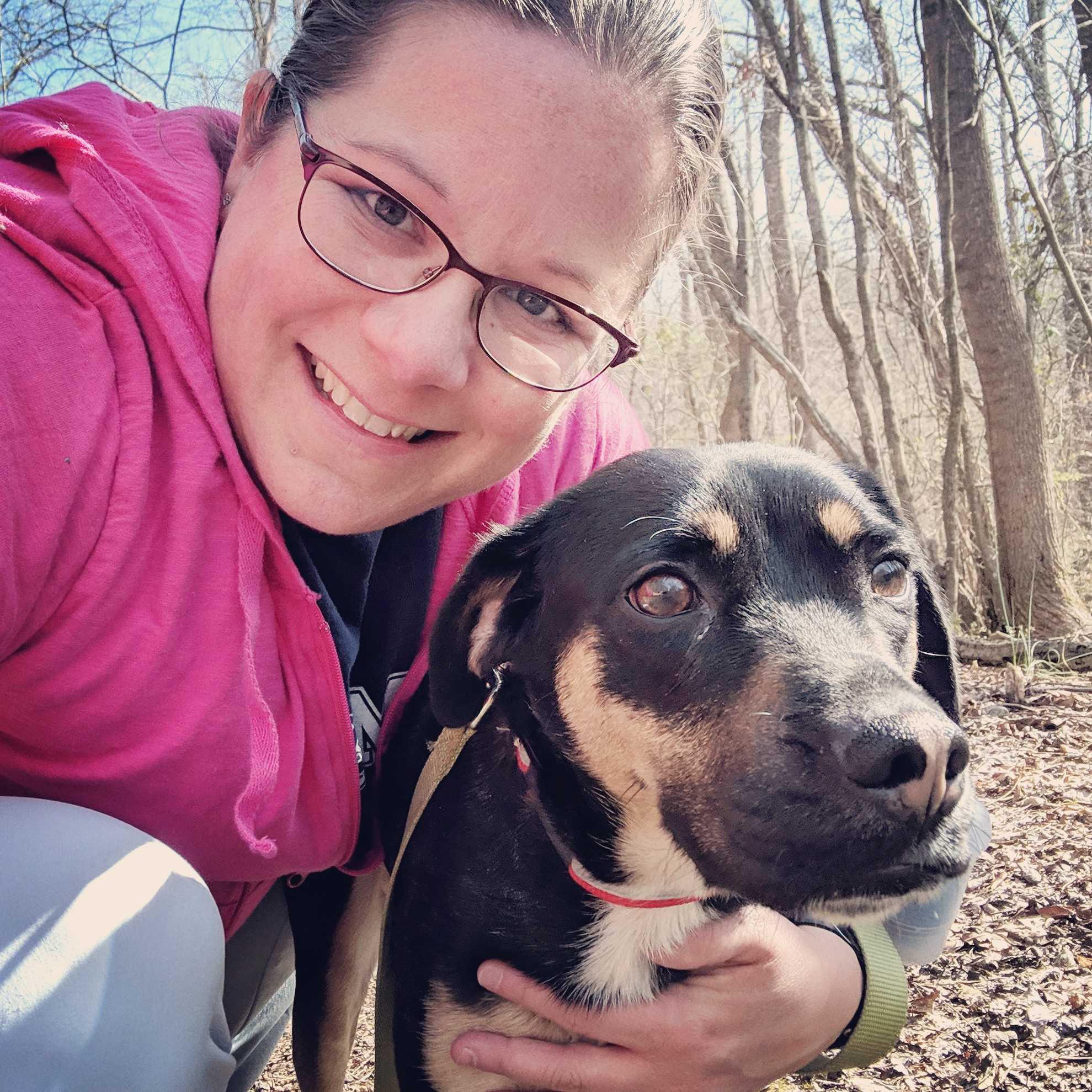How much food should a kitten eat? We asked a vet
An expert vet offers advice for anyone wondering how much food should a kitten eat

Knowing the answer to the question, “how much food should a kitten eat?” is important for a number of reasons. First, it will ensure you’re not at risk or overfeeding your young cats, and, second, you’re also less likely to underfeed them. Plus, you’ll be more confident that you’re providing your kitten with sufficient nutrients, ensuring they have a healthy start to life. And yet the answer isn’t as simple as you may think.
There is no “one portion fits all” when it comes to dishing out the best kitten food. It’s certainly not a case of saying you need to give a kitten a cup of food a day. Or half. Or a quarter. Or indeed two. As you will discover, the answer is more nuanced than that and it takes into account individual kittens. Larger kittens, those who are reaching adulthood and those who have medical conditions will invariably need more food than smaller, younger, less ill kitties.
Likewise, active kittens and those with a slower metabolism will need a different amount than lazier cats and those with a faster metabolism. So let’s take a look at how you can work out the best portion size with the help of expert vet Catherine Barnette and come up with a plan for working out how much food a kitten should eat. If you’re in any doubt, it’s also worth consulting your veterinarian.
How much food should a kitten eat?
According to Dr Barnette, the first important indicator for ensuring your cat is eating properly is your kitten’s age. “Young kittens need far less energy for growth than an older kitten,” she says. “Depending on the particular kitten food that you are feeding, a six-week-old kitten may eat as little as ¼ cup of food per day. In contrast, a 10-month-old kitten may require over one cup of food per day.”
The next important indicator is the nutrient density of the diet you’re feeding. “Kitten foods can differ in caloric density and nutrient concentration,” Dr Barnette said. “Just like humans have to vary food intake based on caloric density (one cup of ice cream contains far more calories than one cup of green beans!), so kitten diets are influenced by the actual food itself.”
This means, as well as knowing the top six kitten feeding tips for raising a strong and healthy cat, the best way to determine how much to feed your kitten is to review the feeding chart present on every bag or can of kitten food. This feeding chart will provide specific feeding instructions, based on your kitten’s current age and/or weight. Each food has a different feeding chart because feeding charts are calculated based on the specific food’s caloric/nutrient density.

What do kittens eat?
Rather than try and work out what kittens eat, it’s best to stick to meals made by pet food manufacturers. So long as you stick to food that is specifically formulated to be complete and balanced for your kitten's needs, you can be assured it’ll help your pet to grow up healthy and strong.
Get the best advice, tips and top tech for your beloved Pets
Dr Barnette says meals should adhere to the Association of American Feed Control Officials’ (AAFCO) nutritional profiles for a kitten’s three separate life stages: pregnancy/nursing, growth and maintenance.
Look for the Nutritional Adequacy Statement on the food label to see if the diet is formulated for kitten growth. This is important. You can’t give adult cat food to a kitten under a year old because it can lead to nutritional deficiencies. You can’t be tempted to feed a kitten the best wet dog food either since it’s a surefire path to potentially life-threatening taurine deficiency.
Quality is always crucial. The World Small Animal Veterinary Association recommends carefully evaluating pet food manufacturers based on whether the company employs a veterinary nutritionist, the diet is formulated by a nutritionist, the company conducts regular quality control testing and the company performs ongoing nutritional research. Consult a veterinarian if you’re not sure.
Should you feed a kitten wet or dry food?
Up to the age of four weeks, kittens should only consume their mother’s milk. After that, you should be giving a cat wet food. It’s then a matter of knowing when can kittens eat dry food and the answer is that you can allow them to gobble kibble after a few weeks. In most cases, it’s best to wait five or six weeks while also giving free access to fresh water.
How do I know when my kitten is full?
Kittens typically regulate their food intake. “They will eat when they are hungry and stop eating when they are full since young kittens have a small stomach so it’s difficult for them to eat a large amount at one time,” Dr Barnette says. You only really need to worry if you find a kitten not eating at all or eating very little. That will warrant a trip to the vet. Otherwise, divide your kitten’s recommended daily food intake into two or three smaller meals each day and you’ll find they should eat everything up.
But what if your kitten finishes their food and still appears ravenously hungry? In that case, increase the amount that you are feeding them. If you find that you are feeding significantly more than what is recommended in your food’s feeding guide and your kitten still appears hungry, talk to your veterinarian. Some medical conditions may increase your kitten’s nutrient requirements, and your veterinarian can help you determine whether additional testing is needed.
Can you overfeed a kitten?
Yes, it is possible to overfeed a kitten. Because of that, it’s important to know how often should I feed my kitten? because excessive food intake in young cats can contribute to vomiting and diarrhea. In older kittens, overfeeding can also contribute to obesity which can predispose your cat to medical conditions and shorten your cat’s lifespan. In both cases, work with your veterinarian to rule out potential gastrointestinal issues and make sure your kittens are within a healthy weight range as they move into adulthood.
Enjoyed this piece and keen to learn more about a kitten’s eating and drinking habits? Then be sure to check out why is my kitten drinking a lot of water? and why is my kitten always hungry? Or, discover the answer to can kittens eat watermelon?
Dr. Barnette is a graduate of the University of Florida, where she received both her B.S. in Zoology and her Doctor of Veterinary Medicine (DVM). She has 15 years of clinical experience as a small animal veterinarian, treating dogs, cats, and occasional exotic patients. She now works as a freelance veterinary writer, creating educational content for veterinarians, veterinary team members, and dedicated pet owners. Dr. Barnette lives in southwest Florida with her husband and daughter (plus two cats, a dog, and a rescued dove!) and enjoys kayaking, biking, and hiking. Learn more about Dr. Barnette at www.linkedin.com/in/catherinebarnette.
- David CrookesFreelance writer

